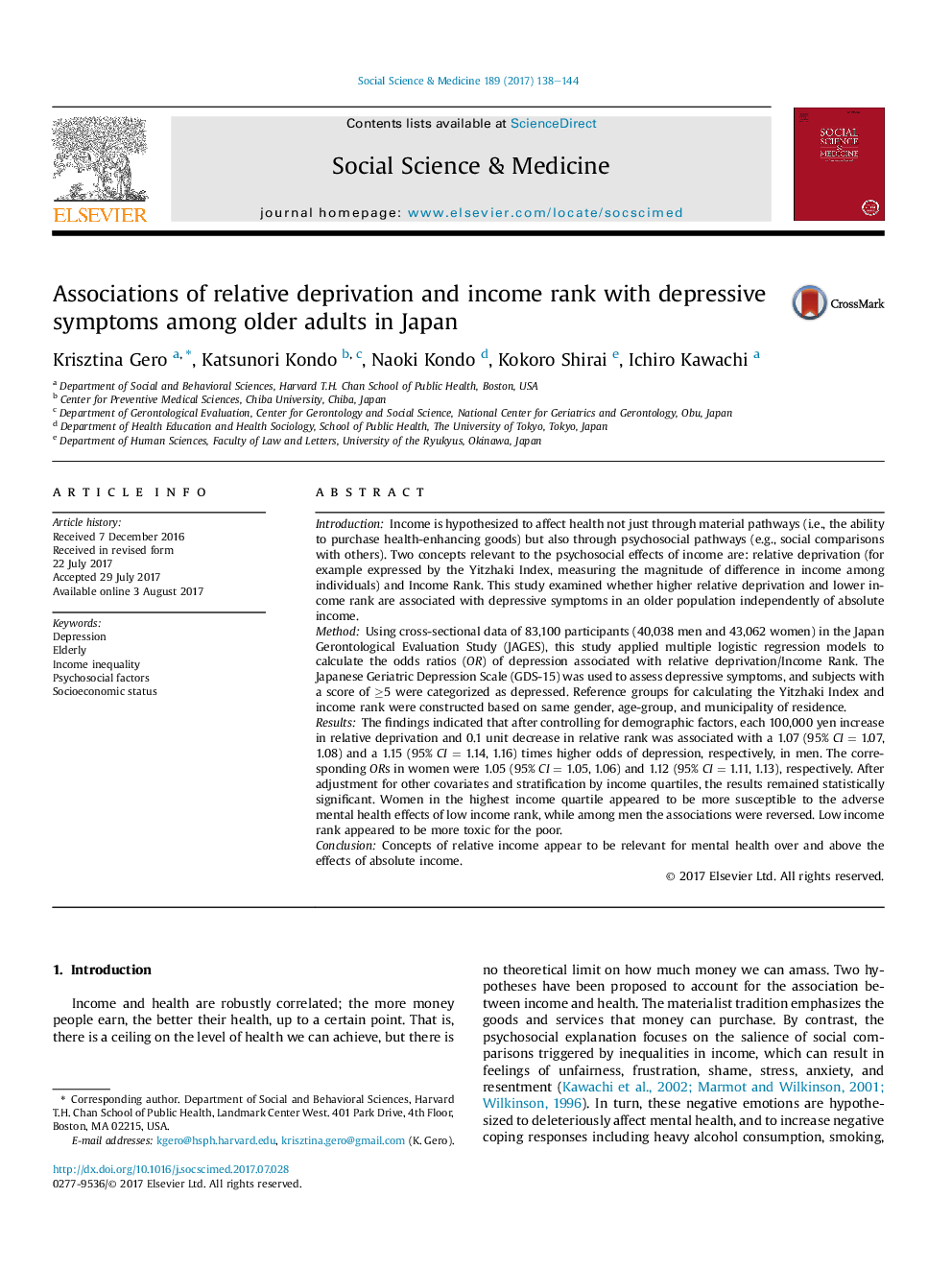| کد مقاله | کد نشریه | سال انتشار | مقاله انگلیسی | نسخه تمام متن |
|---|---|---|---|---|
| 5046436 | 1475980 | 2017 | 7 صفحه PDF | دانلود رایگان |
- Both Yitzhaki Index and Income Rank were associated with depressive symptoms.
- Affluent women appeared to be most susceptible to the negative health effects of rank.
- Men with lower income were more likely to be depressed as a result of lower rank.
- Policies to reduce positional competition are required to address the effects of rank.
IntroductionIncome is hypothesized to affect health not just through material pathways (i.e., the ability to purchase health-enhancing goods) but also through psychosocial pathways (e.g., social comparisons with others). Two concepts relevant to the psychosocial effects of income are: relative deprivation (for example expressed by the Yitzhaki Index, measuring the magnitude of difference in income among individuals) and Income Rank. This study examined whether higher relative deprivation and lower income rank are associated with depressive symptoms in an older population independently of absolute income.MethodUsing cross-sectional data of 83,100 participants (40,038 men and 43,062 women) in the Japan Gerontological Evaluation Study (JAGES), this study applied multiple logistic regression models to calculate the odds ratios (OR) of depression associated with relative deprivation/Income Rank. The Japanese Geriatric Depression Scale (GDS-15) was used to assess depressive symptoms, and subjects with a score of â¥5 were categorized as depressed. Reference groups for calculating the Yitzhaki Index and income rank were constructed based on same gender, age-group, and municipality of residence.ResultsThe findings indicated that after controlling for demographic factors, each 100,000 yen increase in relative deprivation and 0.1 unit decrease in relative rank was associated with a 1.07 (95% CI = 1.07, 1.08) and a 1.15 (95% CI = 1.14, 1.16) times higher odds of depression, respectively, in men. The corresponding ORs in women were 1.05 (95% CI = 1.05, 1.06) and 1.12 (95% CI = 1.11, 1.13), respectively. After adjustment for other covariates and stratification by income quartiles, the results remained statistically significant. Women in the highest income quartile appeared to be more susceptible to the adverse mental health effects of low income rank, while among men the associations were reversed. Low income rank appeared to be more toxic for the poor.ConclusionConcepts of relative income appear to be relevant for mental health over and above the effects of absolute income.
Journal: Social Science & Medicine - Volume 189, September 2017, Pages 138-144
